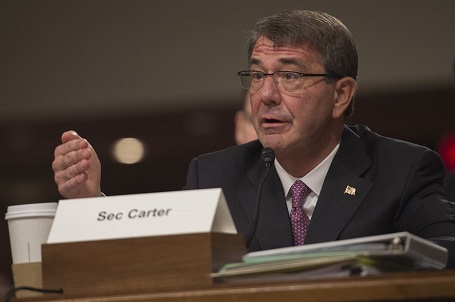Pentagon: “Russia continues to violate sovereignty of Ukraine, Georgia, Moldova”

The United States (US) Department of Defence says despite progress jointly achieved to ensure peace at the end of the Cold War, in recent years Russia appeared "intent to erode the principled international order” by violating the territorial integrity of several nations, including Georgia.
A report released on the US Department of Defence’s official webpage yesterday, prepared by US Secretary of Defence Ashton Carter, highlighted Russia’s aggression in Eastern Europe and revealed America had no tolerance for Russia’s unlawful activities.
Despite the progress we’ve made together since the end of the Cold War, Russia has in recent years appeared intent to erode the principled international order that has served us, our friends and allies, the international community, and also Russia itself so well for so long,” said Carter in the report.
In Europe, Russia continues to violate the sovereignty of Ukraine, Georgia and Moldova, and actively seeks to intimidate its Baltic neighbors,” the report added.
Carter said the US strongly opposed Russia’s intimidating behavior but stressed the last thing the US wanted was to engage in war with Russia.
We do not seek to make Russia an enemy, even as it may view us that way. But make no mistake – we will defend our interests, our allies, the principled international order and the positive future it affords us all,” the report stressed.
Carter said peacemaking was the key reason why the US took a strong and balanced strategic approach in response to Russia’s aggression, and that meant strengthening both allies and the US capabilities in various directions.
Carter also listed Russia, China, North Korea, Iran and terrorism as the five evolving strategic challenges that were driving the US Department of Defence’s planning and budgeting for 2017.
 Tweet
Tweet  Share
Share